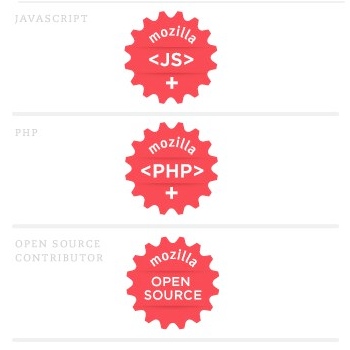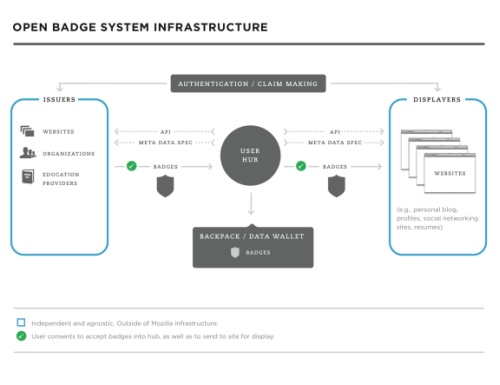 The Boy Scout's badges are something we're all familiar with: accomplish a task, learn a craft, demonstrate a skill, and you're awarded a badge. It's a symbol of your achievement, and one that's recognized and recognizable by others.
The Boy Scout's badges are something we're all familiar with: accomplish a task, learn a craft, demonstrate a skill, and you're awarded a badge. It's a symbol of your achievement, and one that's recognized and recognizable by others.
The Mozilla Foundation and Peer-to-Peer University (P2PU), among others, are working to take the idea of merit-earned badges and build a framework around which they can be used as alternative but accepted forms of certification.
The main premise behind this idea, the argument goes, is that the institutions and organizations traditionally responsible for accreditation no longer match the realities of what learning looks like today. For example, holding a bachelor's degree in computer science is not necessarily an indication that you're skilled in JavaScript, that you are an experienced project manager, that you've contributed to an open source project, or that you work well with virtual teams.
To that end, the Open Badges Project is working to build a system by which all sorts of skills and competencies can be tracked, assessed, and through badges, showcased and recognized. Currently the project is under development with the open-education organization P2PU.
Opening up certification and accreditation this way is a massive undertaking, and as the project's lead Erin Knight notes on her blog, doing so raises a lot of questions:
What skills should we assess? Are there skills that are better left unassessed? What do we want to encourage? How do we avoid encouraging the “wrong” behavior? Who gets to decide which skills to assess? How much influence should outside stakeholders, such as employers, have on badges? Should they be able to design assessments and badges that are relevant to them? How can we let them have a say without creating an imbalance in the system or constraining the learning? How granular should badges be? … Should badges expire? How do we deal with skills that need to be refreshed or renewed? … Will these badges translate to formal learning environments? And if so, how? What would be required to make schools or institutions value or accept badges? Can we meet those requirements without changing the nature of the learning environments?
None of these are easy questions to answer. But moving forward, the Open Badges Project is focusing on making the framework as open as possible. Last week, the project announced the alpha version of its Open Badges Infrastructure. It's important that the project support badges offered by any organization across the Web, but it's also important that recipients be able to collect all their badges in one central place -- one that they control, in a format that they can take to job interviews or post online (to their blog, for example, or to their LinkedIn profile).


